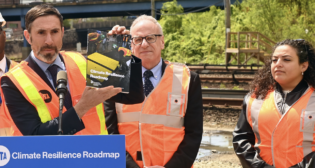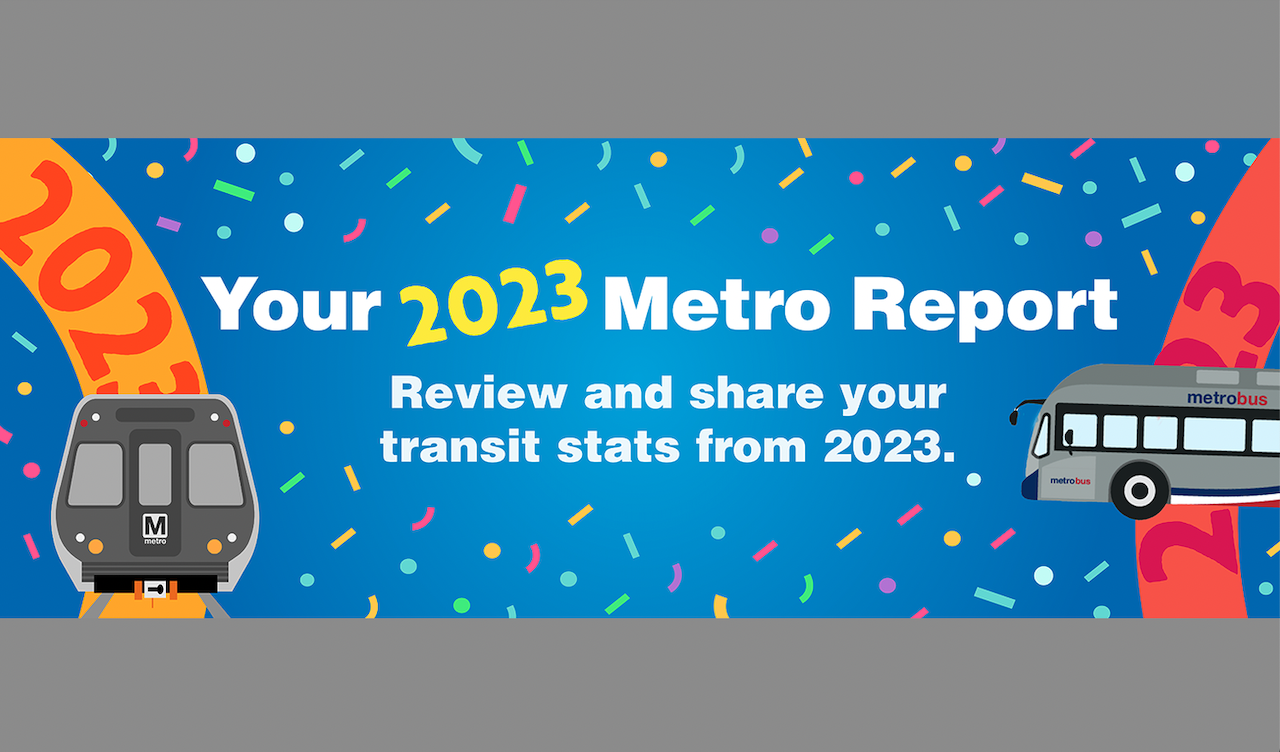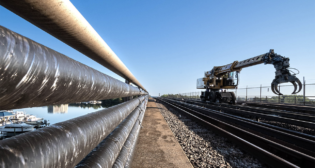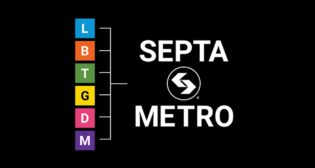
Transit Briefs: WMATA, Metra, NC By Train, MBTA
Written by Carolina Worrell, Senior Editor
A new tool allows Washington Metropolitan Area Transit Authority (WMATA) customers to get a personalized ridership report. Also, Metra adopts a Passenger Code of Conduct, NC By Train achieves record breaking ridership in 2023; and the Massachusetts Bay Transportation Authority (MBTA) receives $200.8 million from the Millionaire’s Tax to address infrastructure, safety and hiring.
WMATA
WMATA has released a new website called Your 2023 Metro report, which gives riders detailed information about their use of public transit last year, including:
- Number of bus and rail trips.
- Number of stations visited.
- Miles they traveled on transit.
- Most used bus route.
- How much carbon dioxide emissions they saved by taking transit instead of driving or ride-hailing.
- How they rank against other Metro riders.
“We know how much value transit brings to the region and the lives of our customers and this new tool will give riders a tangible idea of how much they used Metro in 2023,” said WMATA General Manager and CEO Randy Clarke. “Every time you choose to take transit over driving, you’re helping the DMV region to make strides toward our climate and safety goals and you’re saving time by not sitting in traffic.”
Clarke, who currently ranks in the top 1% of WMATA riders in 2023, says he hopes the stats bring some friendly competition to social media, too.
Customers can visit wmata.com/yourmetroreport and enter their 20-digit SmarTrip number on the back of their card. The number can also be found in Google or Apple Wallet.
Customers are encouraged to screenshot the results and share it on social media with the hashtag #Your2023MetroReport.
According to WMATA, this is the first year of the project and the agency hopes to add more stats in the future, including more data for MetroAccess and more detailed information on bus and rail.
In 2023, WMATA ridership increased more than 30% across Metrorail, Metrobus, and MetroAccess compared to 2022. The system had more than 226 million passenger trips.
Metra
The Metra Board of Directors on Jan. 17 adopted a Passenger Code of Conduct that “identifies prohibited behaviors for anyone using Metra facilities or trains and allows for the suspension of riding privileges and/or confiscation of the fare media of passengers whose behavior threatens the safety of train crews, other employees, and fellow riders.”
The new Passenger Code of Conduct is in response to a law passed by the Illinois Legislature in 2023 that gives transit agencies the ability to act against riders who engage in certain conduct. Examples of prohibited conduct include:
- Verbally or physically threatening the safety of another person/others.
- Causing or attempting to cause physical harm to another person/others.
- Pushing or attempting to push another person/others.
- Hitting, kicking, or attempting to hit or kick another person/others.
- Attacking or threatening to attack another person/others with a weapon. This includes, but is not limited to, waving weapons or pointing a gun at another person/others (regardless of whether the gun is loaded).
- Throwing or attempting to throw things at another person/others.
- Spitting on or attempting to spit on another person/others.
- Sexually assaulting or attempting to sexually assault another person or persons.
- Engaging in acts of public indecency.
“The safety of our riders and our workers is paramount, and Metra intends to make full use of this new state law to make sure we are protecting both riders and workers to the best of our ability,” said Metra Executive Director/CEO Jim Derwinski.
If a person engages in any of these behaviors, Metra says its employees will contact Metra Police, who will issue a notice to the passenger and schedule a hearing date regarding confiscation of fare cards (or withdrawal of mobile tickets from the Ventra app) and/or suspension of riding privileges. Metra Police may also issue criminal citations, as warranted.
The hearings, which can be conducted in person at Metra headquarters at 547 W. Jackson, remotely, or by telephone, must take place before any suspension of riding privileges and/or confiscation of fare media occurs. Riders may waive their right to a hearing and ask that the confiscation/suspension be imposed earlier. If fare media is confiscated and/or riding privileges are suspended after the hearing, the violators will have the right to up to two appeals. Suspensions can range from 10 days to one year. However, repeat offenses may result in lengthier suspensions lasting longer than a year.
If the fare media is confiscated, the value of any unexpended fare credit or unexpired passes will be reimbursed. Metra Police will keep a database of individuals, and if they are caught riding during their suspension period, they may be arrested for criminal trespass.
“No transit employee should have to face an individual who has spit in their face, threatened their life, placed their hands on them or physically assaulted them,” said Bob Guy, State Director for the SMART Transportation Division (SMART-TD), the union that represents Metra conductors. “With Metra’s new Code of Conduct, those acts, along with others, will now be cause for someone to lose riding privileges, and repeated offenses can, and should, lead to lengthy suspensions. We thank Metra for working with SMART-TD on this new policy and will look forward to its enforcement to help with the safety and security of not only our members, but also the valued customers of Metra.”
“This law is long overdue and the first step toward protecting the men and women who work on board Metra trains,” said SMART-TD General Chairman Edward Waugh.
“I applaud Metra for adopting a new passenger code of conduct that will hold riders who assault Metra workers accountable and make it clear that riding Metra is a privilege, not a right,” said Brian Shanahan, Vice President, Transportation Communications Union, which represents Metra front-line customer service workers. “Metra’s workers should never be forced to choose between doing their job and risking their life.”
NC By Train
The North Carolina Department of Transportation (NCDOT) on Jan. 16 announced that NC By Train achieved record ridership in 2023 for the second year in a row.
According to the agency, the state’s intercity passenger rail service carried more than 641,000 passengers in 2023, 23% higher than the record set in 2022 with 522,000 passengers.
“We’re pleased that NC By Train continues to grow and be an important transportation option for North Carolinians,” said Transportation Secretary Joey Hopkins. “Based on the success of the last two years, we are continuing to explore opportunities to further increase frequencies and expand service to communities across the state.”
Contributing to the services growth and popularity, NCDOT says, were the addition of a fifth-round trip between Raleigh and Charlotte in July 2023 and numerous events and special stops, such as the N.C State Fair, the Lexington Barbeque Festival, and football games.
NCDOT says it encourages people to take advantage of the “safe, comfortable and convenient transportation available on NC By Train with its large seats, charging outlets at each seat and free WiFi.” NC By Train offers a variety of everyday discounts for children, students, active military personnel, veterans and seniors, as well as Share Fare, which allows groups of up to eight people to save money with each additional ticket that is purchased.
MBTA
The MBTA is receiving a $200 million allocation from the Millionaire’s Tax, or what officials refer to as the Fair Share Amendment, “to address safety, hiring and retention and to improve infrastructure across the beleaguered transit network,” according to a Boston Herald report.
According to the report, one day after commuters couldn’t get to downtown Boston using the system’s three most popular lines due to an “onslaught of issues,” the Massachusetts Department of Transportation’s (MassDOT) Board of Directors approved transferring $200.8 million to the MBTA—$180.8 million for physical infrastructure improvements and the remaining $20 million for workforce and safety initiatives.
The pool of money is the first allocation MBTA has received from the Millionaire’s Tax, according to the report.
According to the Boston Herald report, Massachusetts voters in November 2022 approved a 4% surtax on incomes above $1 million annually, with the revenue dedicated to improving education and transportation.
“Gov. Maura Healey left intact a plan Beacon Hill lawmakers approved in the fiscal year 2024 budget to spend $477 million of the expected $1 billion in revenue from the Millionaires Tax on transportation needs, including the MBTA and preserving highway bridge infrastructure,” according to the report.
Last month, the Boston Herald reports, Healey’s administration handed out $100 million in “Fair Share” dollars to the state’s 351 cities and towns Friday for transportation upgrades, with Boston raking in more than $5 million.
Healey has said her administration was “going to make sure that Fair Share revenue was used to improve transportation and education for our communities, as the voters intended,” according to the report.
Among the $180.8 million for infrastructure improvements across the MBTA, the Boston Herald reports that $70 million will be going toward station and accessibility upgrades, $50 million for bridge repair, rehabilitation and replacement, $30 million for track authorization and signal improvements on subway lines, and $20 million for commuter rail projects.
The remaining $10.8 million is “earmarked for the design of a project that looks to connect the Red and Blue lines by extending the Blue Line’s current terminus at Bowdoin station through a tunnel under Cambridge Street to the Charles/MGH Red Line station,” according to the report.
According to the Boston Herald report, officials will use $20 million to “address concerns raised in a safety management inspection plan that the Federal Transit Administration (FTA) issued in 2022, detailing a poor safety culture at the MBTA that has resulted in overworked staff, aging infrastructure, and an inability to effectively balance daily operational needs with completing capital projects.”
Some of the $20 million, the Boston Herald reports, will also go toward hiring and retention initiatives at MBTA, which hired 1,480 new employees and promoted 511 others last year, boosting its workforce by 10%, officials said during an agency board meeting last week.



